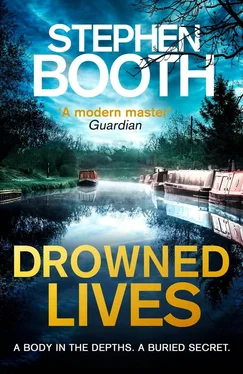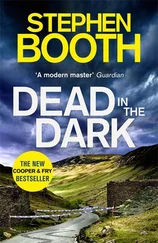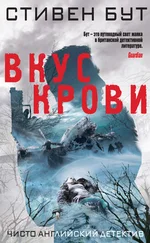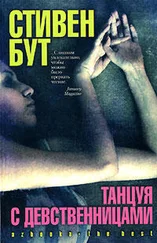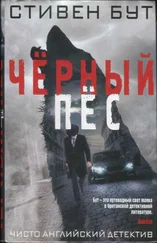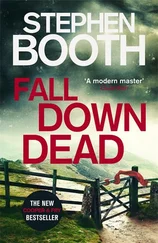And then there was Mary, the woman right at the heart of everything.
I phoned Laura to reassure myself that she was coming to Lichfield the next day, and to report on my meeting with Leo Parker.
‘And she’s actually still alive?’ she said, her voice rising to an incredulous pitch, the way mine must have sounded when I stood in that room at Leo Parker’s house. ‘It must have been a shock after all these years.’
‘You can say that again.’
‘And so the story is that Mary left your grandfather for his brother while he was away fighting in the war?’
‘So it seems,’ I said. ‘While he was lying injured in a field hospital in Burma, she got bored and decided to find somebody else. That was a fine hero’s welcome for him when he came home, wasn’t it? To find his faithless wife had left him, taking his six-year-old son with her — a son he hadn’t seen for three years, who he must have dreamed about night after night while he was fighting his way towards Singapore. It wasn’t the war that killed my grandfather, it was Mary Parker. The Germans and Japanese damaged him, but Mary destroyed him. That was why he killed himself.’
If I was expecting sympathy from Laura, I didn’t get it. Perhaps it was the distancing effect of the phone that made her sound detached. I felt sure it would have been better if I could have been there with her, to get comfort from her presence.
‘But what about Samuel?’ she asked.
‘Samuel became rich, but he was an old man riddled with guilt, who wanted to atone for it before he died. Now he’s atoning to the tune of fifty thousand pounds. He thinks he can carry out his penance through me,’ I said. ‘This is blood money.’
‘Yes, I suppose that’s true.’
‘And now he’s made me feel the guilt.’
‘Why, Chris?’
I stared out of the window at the houses in Stowe Pool Lane.
‘Because my pride makes me want to turn it down. But I can’t afford to. The fact is — I need his blood money.’
And later I had to explain the same thing over again to Rachel.
‘What’s the matter?’ she asked as soon as she set eyes on me. ‘What happened?’
She stared at me as I pulled off my coat and shoes, and collapsed into a chair.
‘I’ve just met Mary,’ I said.
‘Mary...?’
‘Yes, that Mary,’ I said. ‘You were right, she’s still alive. Well, physically at least.’
‘Do you mean she has dementia?’ she said, when I described her.
I realised I hadn’t asked Leo Parker what Mary was suffering from.
‘Yes, I think so. She doesn’t seem to be able to communicate or recognise anyone. She’s living in Hints with her stepson, Leo Parker.’
‘That’s why he was worried about protecting her reputation, then. Not just an interest in the past, but a concern for the living.’
‘I suppose so.’
‘You don’t sound convinced, Chris.’
‘I don’t know. There’s still something not quite right.’
When Rachel heard the story Leo Parker had told me, she was appalled at the thought of the misery that had been caused, and all the grief that had been stored up for future generations.
‘It’s amazing the things that people will do to themselves,’ she said thoughtfully.
It was an aspect that hadn’t occurred to me. ‘Yes, you’re right. Samuel brought everything on himself.’
Rachel looked at me for a moment. ‘That wasn’t quite what I meant.’
But I was following my own train of thought. ‘Samuel’s problem was that he caused trouble for everyone around him as well.’
‘Yes, Samuel,’ she said. ‘It’s an odd thing, this business about him thinking he had a son who was killed in that car crash. An unborn son.’
‘Oh that. I can’t believe that Samuel ever said it.’
‘You think Leo Parker was lying? But you believed everything else he told you, Chris.’
‘Yes. He’s a clever man, of course. I think he slipped a big lie in among a series of appalling truths, in the hope that I’d accept it without question.’
‘But why?’
‘Don’t you see? He wanted me to be convinced that Samuel had become mentally unbalanced since the crash. Let’s face it, there is plenty of evidence pointing that way if you choose to see it in that light. Leo wanted to be sure that I did see it. No doubt he’d like everybody to see it that way.’
‘Ah,’ said Rachel. ‘So that the will could be challenged.’
‘Exactly. On the grounds that Samuel was no longer of sound mind when he made it.’
‘Caroline Longden seems to have been trying hard to give you that impression too. And she’s the one who stands to gain, isn’t she? Not Leo.’
‘Yes,’ I said. ‘It’s what I’d call a very interesting alliance.’
Back at my desk, I remembered the package Mrs Wentworth had brought. What could Godfrey Wheeldon have been sending to Samuel? Could it be more letters? But if so, why hadn’t he mentioned them?
I ripped open the package and unwrapped the newspaper inside. At first, I almost laughed at what I found. But then I felt more like crying. It was a set of cigarette cards depicting famous cricketers from the 1920s, the ones that Godfrey had told us Samuel was interested in. The cards were a gift from one old man to another. And both of them were dead before the gift had been received.
I looked at the cards for a while before I put them away. Then I decided to go through my photos again. The shots of the visit to the Fosseway site by Lindley Simpson and Leo Parker were now added to the earlier ones. Leo could be seen talking to the MP, to the chairman of the restoration trust, to Andrew Hadfield and some of the other members. He was recognisable mostly by the set of his shoulders, as he seemed to have managed to keep his back to the camera throughout. But Frank must have seen him clearly from the banking above the wharf to recognise him as the man who’d been asking questions at the bowls club.
I had got a blow-up done of one of the earlier pictures of Fosseway. It was the one that showed Samuel looking towards me across the restored lock, but in the enlargement only Samuel’s face and the shoulders of his black coat were visible. I stared at my great-uncle’s photograph in bafflement, the questions colliding with each other as they rushed into my mind. Captured by the lens, Samuel’s weary face was gaunt with sorrow and guilt, and etched with a bitterness that had lasted, undimmed, for over fifty years. As I looked at him, I tried to picture him as a handsome young man, who’d been so tempted by desire for his own brother’s wife that he’d committed a desperate act.
I stuck the picture on the corkboard over my desk, along with the square black and white print of George and Samuel as boys.
There was also another good photograph of Samuel at Fosseway, but more in the distance. He was pictured across the lock, on the far side of a black gulf. There was a pleading expression in his eyes, as if he were still appealing to me from the grave.
Then I noticed an even earlier shot from that same day. The yellow dumper truck was in the foreground, backing up to the spoil tip near the tailgates. I’d taken the picture because of the contrast between the yellow of the dumper and the black of the damp earth, as well as the sense of movement and the serious expressions on the faces of the workers. But in the background of the photograph was Samuel.
I hadn’t noticed him when I was taking the picture, because I’d been focusing on the activity around the lock. But there he was, and he’d evidently just arrived at the site, because he was standing with his back to the open door of a car, leaning slightly forward as if caught in the very act of getting out. The car was a light green saloon, but I couldn’t tell the make. Surely Samuel hadn’t arrived in a car — he didn’t even have one. But then I realised it was the passenger door he was getting out of. Someone had brought him to Fosseway that morning.
Читать дальше
